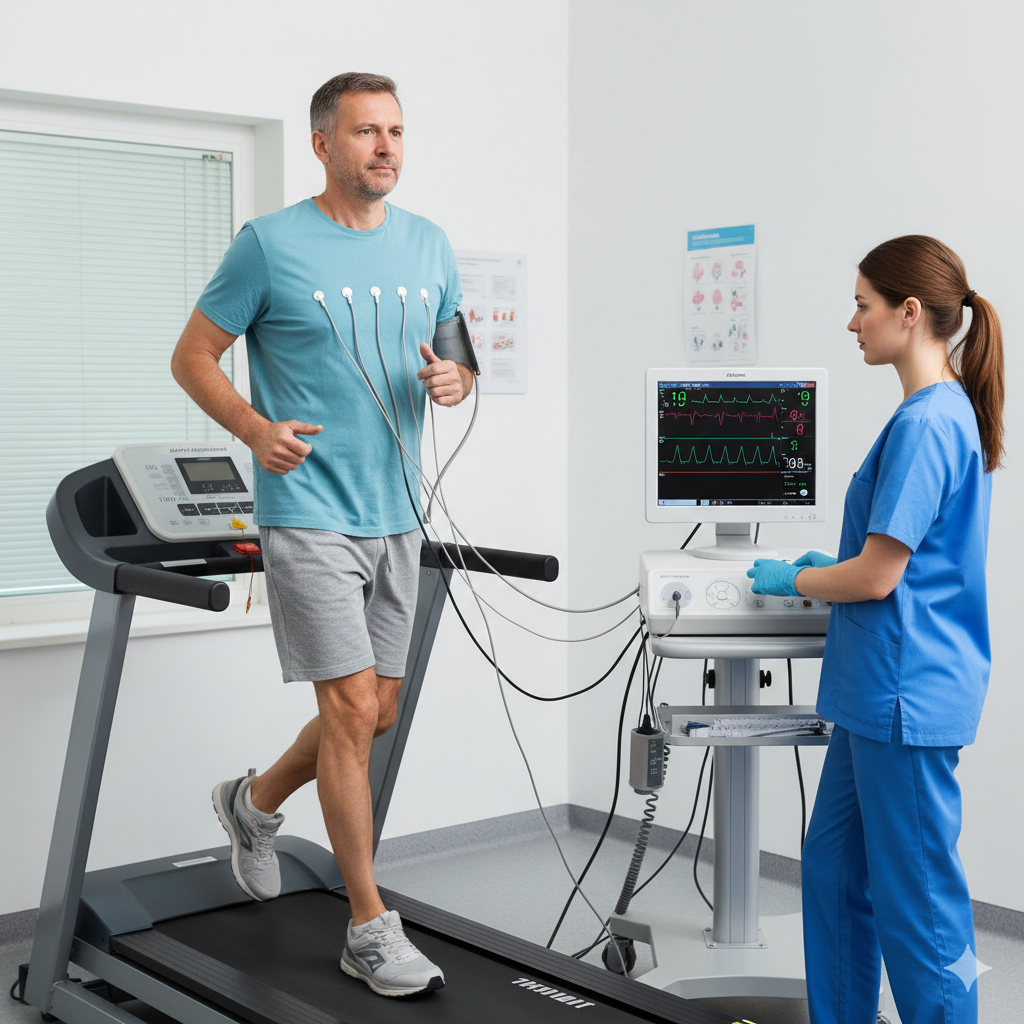- 19, Opp. Ramkrishna Math, Rahate Colony Road, Dhantoli, Nagpur -12, +91 9413564868
Treadmill Test (TMT)
An Optimal Cardiac condition is imperative for orchestrating the symphony of the body’s myriad organs. The intricate dance of factors influencing heart health encompasses heightened stress levels, metamorphoses in lifestyle paradigms, and dietary shifts. Enter the TMT test, or the treadmill test, a litmus test for assessing cardiac functionality in individuals grappling with diabetes and its concomitant risks for heart maladies. It extends its purview to those with a history of heart ailments or recipients of cardiac interventions.
What is TMT Test?
The TMT test, or the treadmill test, colloquially known as the exercise stress test, endeavors to fathom the limits to which your heart can sprint before succumbing to irregular rhythms or confronting diminished blood supply to its muscular citadel. Physicians wield this diagnostic tool as a sentinel, scrutinizing your heart’s comportment when subjected to calibrated exertion. Embark on a quest for a proximate TMT test, and opt for a Diagnostic center of unparalleled repute, boasting avant-garde technology and adept laboratory personnel adept at swiftly and aptly administering treadmill assessments.

Why is the TMT test needed for the heart?
Embarking on an exercise ECG (electrocardiogram) or a cardiac stress test often referred to as the treadmill test (TMT) is a routine procedure designed to unveil crucial insights.
This comprehensive evaluation seeks to uncover:
- The efficiency of your heart’s blood-pumping prowess.
- The adequacy of blood supply to your heart.
- Your comparative physical aptitude concerning age and gender, particularly while navigating a treadmill or stationary bike.
- The replication potential of indicators such as shortness of breath, chest discomfort, rapid heart rate, or dizziness during physical exertion.
- This meticulous process facilitates the identification and assessment of specific cardiac issues, including:
- Muscular or valve anomalies.
- Ensuring ample blood circulation to your heart muscle.
- Assessing your heart’s electrical stability both at rest and during exercise.
The treadmill exercise stress test serves as a valuable tool for physicians, aiding them in determining the necessity for further, often more invasive, testing to confirm a diagnosis or assess the efficacy of treatment in reducing the risk of a heart attack and enhancing overall well-being.
Preparation for the Treadmill Test TMT
Avoid Heavy Meals & Caffeine
Do not eat a heavy meal, drink coffee, or smoke at least 2-3 hours before the test to prevent discomfort and ensure accurate results.
Wear Comfortable Clothing & Shoes
Choose loose-fitting clothes and sports shoes for ease of movement during the treadmill test.
Medication Guidance
Inform your doctor about any medications you take, as some may need to be adjusted or stopped before the test.
Stay Hydrated
Drink water as needed but avoid excessive fluid intake right before the test to prevent discomfort.
Get Proper Rest
Ensure a good night’s sleep before the test to avoid fatigue, which may affect performance and results.
Communicate Any Discomfort
Inform the technician immediately if you experience chest pain, dizziness, or breathlessness during the test to prevent complications.

